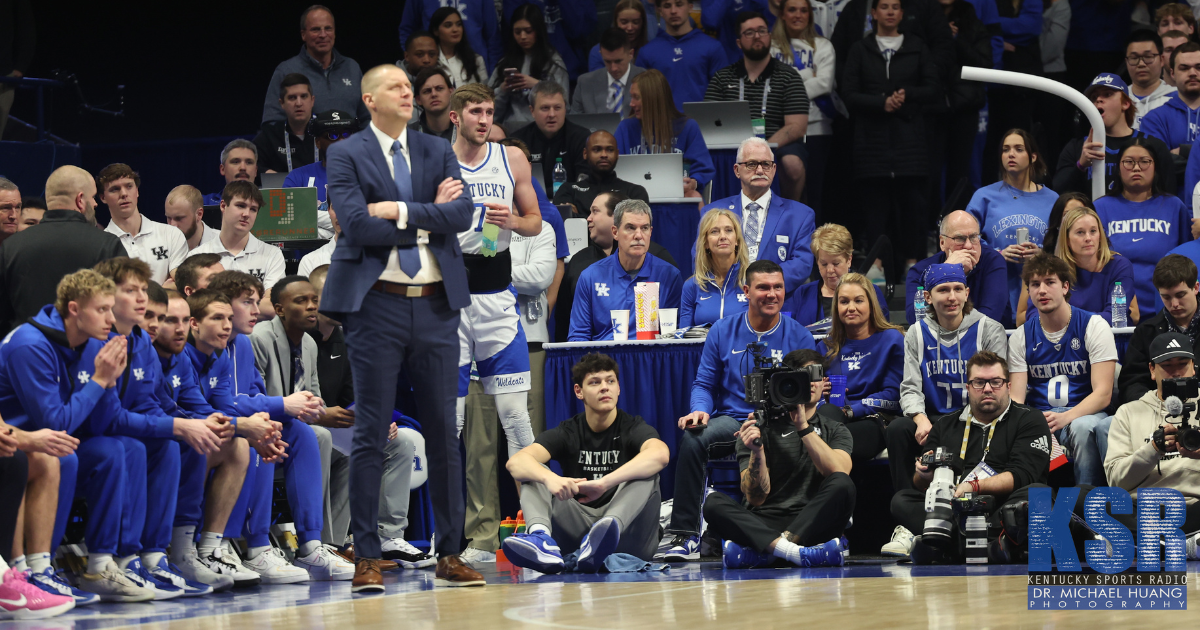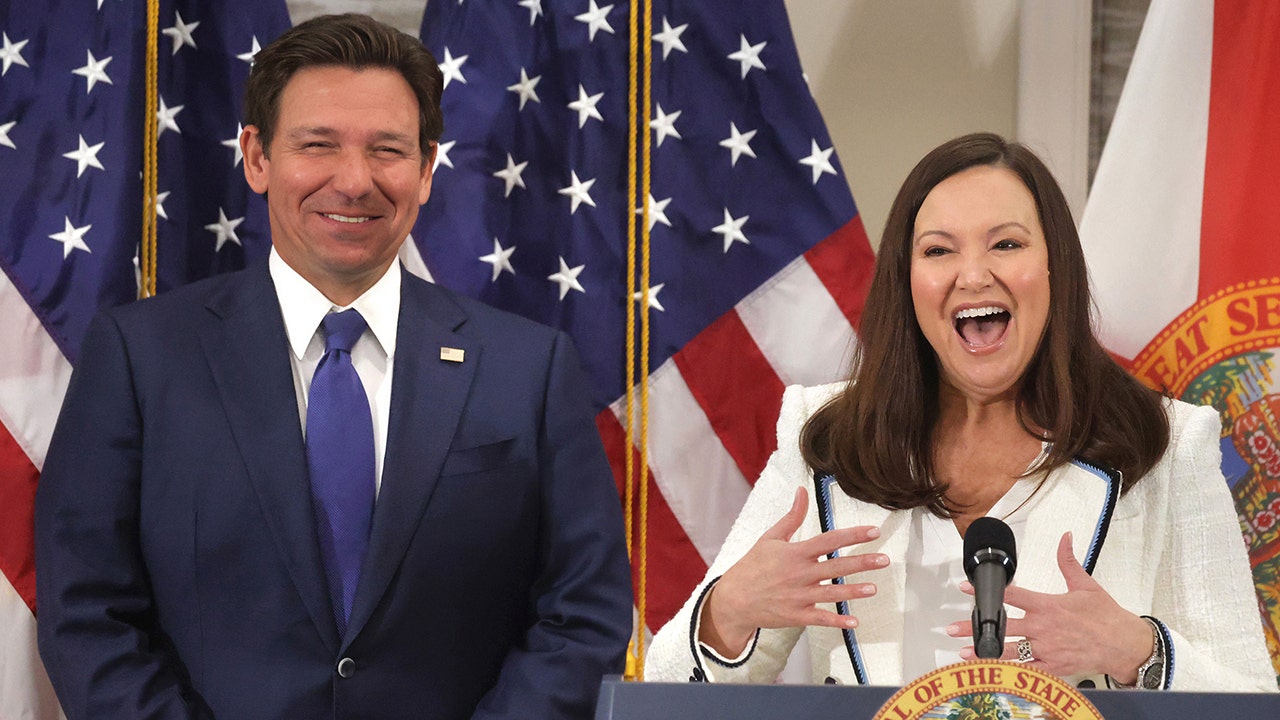Health
Breast cancer survivor says her 120-pound weight loss helped save her life: ‘Strong, confident and healthy’
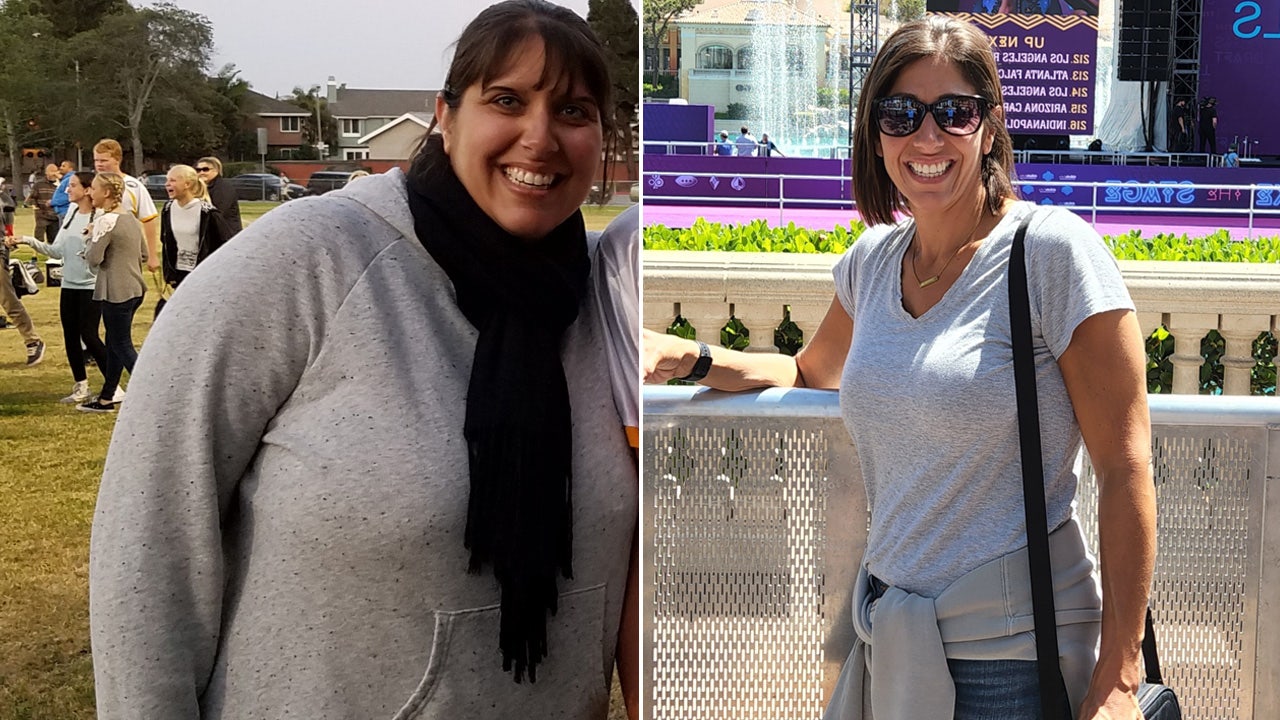
Tamara Loving, a mother of two from Huntington Beach, California, believes her dramatic weight loss helped her beat breast cancer.
In 2016, when she was 37, Loving embarked on a weight loss journey. After joining WeightWatchers and spending eight months of meal-prepping, healthy eating and exercising, she lost 120 pounds — down to 150 from her original weight of 270.
The very next year, after a routine mammogram, Loving was diagnosed with stage 1A hormone-receptor–positive breast cancer in June 2017.
BREAST CANCER BREAKTHROUGH: AI PREDICTS A THIRD OF CASES PRIOR TO DIAGNOSIS IN MAMMOGRAPHY STUDY
An initial biopsy confirmed the diagnosis — and Loving’s first treatment was a lumpectomy and lymph node dissection of the right side, she told Fox News Digital.
The results of that procedure were alarming, as there were more tumors than the doctors initially thought.
Tamara Loving of California is pictured before and after her 120-pound weight loss. (Tamara Loving/WeightWatchers)
Loving faced a choice between another lumpectomy to remove more of the tissue — or a mastectomy.
“Since they found more tumors than the imaging had shown, I became fearful that there was cancer that may have gone undetected,” Loving said.
“Based on this, I decided to have a double mastectomy with reconstruction in November 2017 once I was healed from the previous surgery.”
CANCER SCREENINGS: HERE ARE 5 TYPES AND CRITICAL INFORMATION TO KNOW ABOUT EACH
That surgery allowed Loving to avoid radiation therapy, and chemotherapy was not needed because the lymph node dissection results came back negative.
Loving officially went into remission six months after her diagnosis, in November 2017.
The obesity-cancer connection
Dr. Brett Osborn, a neurologist and longevity expert in Florida, has long warned of the dangers of obesity, including a higher risk of cancer.
“Cancer, like all non-infectious, age-related diseases, is underpinned by inflammation,” he told Fox News Digital. “And obesity is an inflammatory disease resulting from the overconsumption of simple carbohydrates in the context of a sedentary lifestyle.”
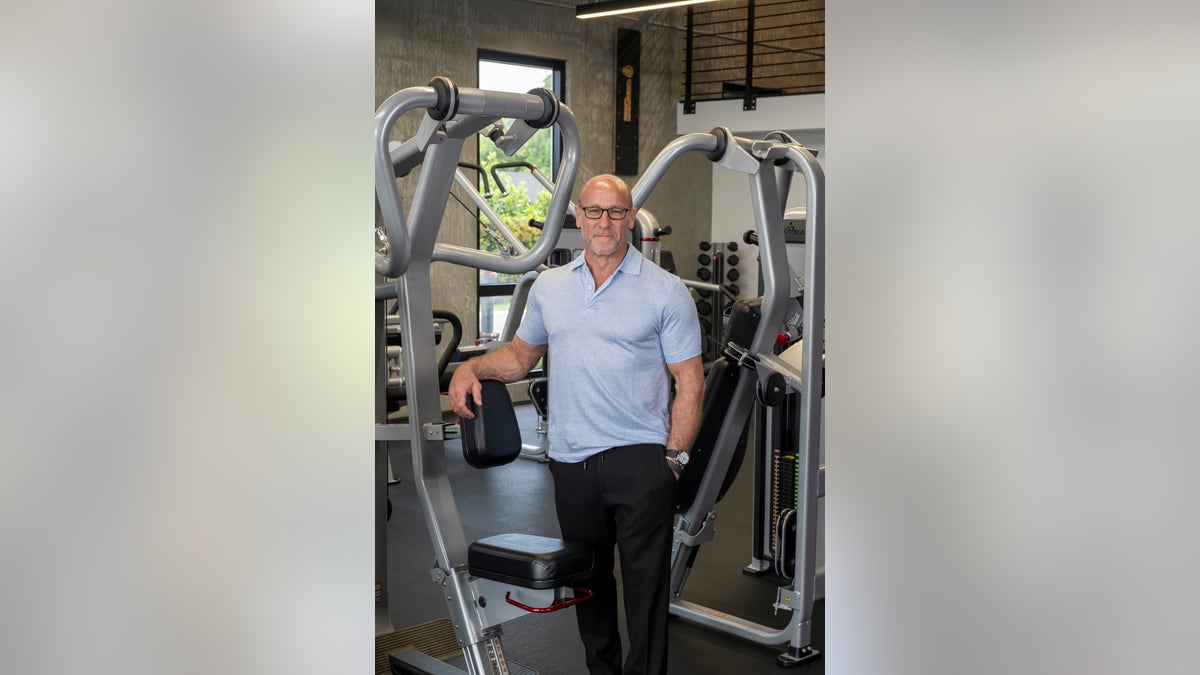
Dr. Brett Osborn, a neurologist and longevity expert in Florida, has long warned of the dangers of obesity, including a higher risk of cancer. (Dr. Brett Osborn)
For breast cancer in particular, Osborn noted that the disease is 1.2 to 1.4 times more likely to occur in obese post-menopausal women than those with normal body mass index (BMI).
“And some cancers are two or three times as likely to occur in obese or overweight patients,” he said.
OBESITY MAPS: CDC REVEALS WHICH US STATES HAVE THE HIGHEST BODY MASS INDEX AMONG RESIDENTS
Obesity can also make it more difficult to fight cancer after a diagnosis, Osborn added.
“If you are obese and fighting cancer, you are trudging uphill, shouldering a 100-pound rucksack,” he said. “You are certainly not stacking the deck in your favor.”
Conversely, if someone loses body fat, they will have a reduced chance of developing cancer and also will be better equipped to fight it, Osborn said.

Tamara Loving is pictured with her husband and two children after her weight loss and cancer recovery. (Tamara Loving)
“Why? The promoters for cancer growth have been eliminated — namely, the high levels of circulating blood sugar and inflammation,” he said.
“So not only are you increasing your risk of beating cancer, but you are also getting leaner. And a leaner body — within reason — is a healthier body.”

Tamara Loving (second from right) is shown with her husband and two children after her weight loss and cancer recovery. (Tamara Loving)
Dr. Lori Alfonse, deputy physician in chief at Lehigh Valley Health Network’s Lehigh Valley Topper Cancer Institute in Pennsylvania, agreed that obesity increases cancer risk and makes it more difficult to overcome the disease.
“Obesity has many effects on the body, two of which include insulin resistance and decreased mobility,” she told Fox News Digital.
“When the body’s insulin does not work well, overall glucose levels remain high and can cause poor wound healing after surgery.”
“If you are obese and fighting cancer, you are trudging uphill, shouldering a 100-pound rucksack.”
“Decreased mobility can set a breast cancer patient up for increased risk of deep vein thromboses or blood clots, as the cancer makes the person’s blood thicker and stickier than normal,” she warned.
“Most importantly, obesity, especially after menopause, increases a person’s risk of breast cancer recurrence.”
Dr. Yvonne Estrin, a radiologist and breast imaging specialist at the University of Miami, noted that fat cells have an enzyme called aromatase that produces estrogen — and estrogen exposure is a well-known risk factor for breast cancer.
“The more fat you have, the more estrogen you make, thus the increased risk,” she said. “Many breast cancers are estrogen receptor-positive, so the excess estrogen can fuel the tumor cells to divide rapidly.”
ULTRA-PROCESSED FOOD CONSUMPTION LINKED TO HIGHER RISK OF DEATH FROM OVARIAN, BREAST CANCERS: NEW STUDY
Someone with obesity may have a harder time fighting breast cancer simply because of the taxing treatment and surgery, Estrin said.
“They are more prone to adverse consequences of surgery and anesthesia,” she noted. “The increased estrogen produced by fat tissue may also pose a problem with hormone therapy treatments.”
Winning weight-loss recipe
The year before her breast cancer diagnosis, Loving embarked on a weight loss journey that combined regular exercise and nutrition.
“A typical week of workouts includes five days in the gym and the other two days [of] doing recreational activities, such as hiking in the mountains, bike riding or walking along the beach with my husband,” she shared with Fox News Digital.
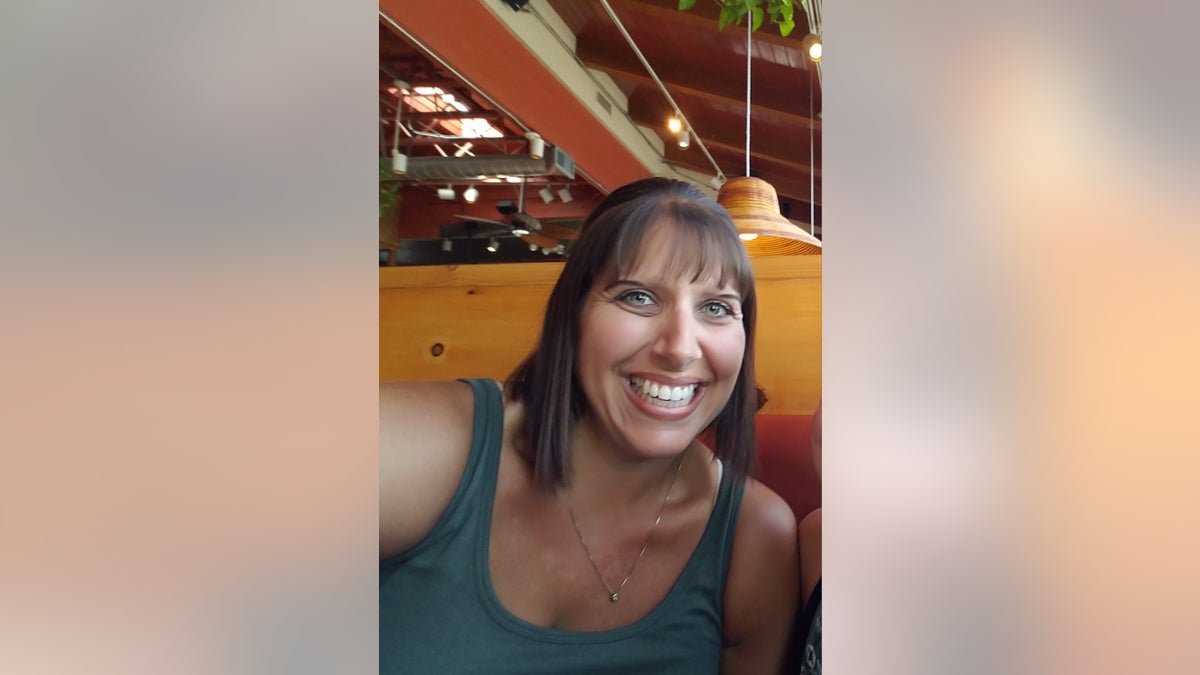
“Today, I feel strong, confident and just overall healthy, thanks to the lifestyle changes and habits I adopted,” Loving said. (Tamara Loving)
In the gym, Loving starts with 30 minutes of interval training on the elliptical machine. After that, she alternates between 30 minutes of walking on an incline on the treadmill or 30 minutes on the stair climber.
After her cardio-based workouts, Loving does either weight training, rowing or stretching.
On the nutrition front, Loving said she stocks up on fresh fruits, vegetables and other healthy items to keep her week on track.
“Some factors known to affect breast cancer risk lie outside our control, but many are modifiable with simple lifestyle changes.”
“I put an emphasis on almost all of my meals being home-cooked and fresh to prioritize clean eating rather than [having] processed takeout food,” she said.
“I have established effective meal combinations that not only satisfy with a good taste, but also contribute to proper nutrition,” she also said. “This makes it easy to determine my meals for the day when I wake up in the morning because every day looks slightly different.”
Life-changing benefits
Beyond helping her overcome her cancer, Loving told Fox News Digital the additional benefits of her 120-pound weight loss.
“My body is now able to be more active and overall in a better, more youthful condition,” she said.
CLICK HERE TO SIGN UP FOR OUR HEALTH NEWSLETTER
“The weight loss improved my cardiovascular health and sleep patterns, and reduced the amount of joint pains,” Loving continued. “It also improved my mental health by reducing anxiety.”
She also said, “Today, I feel strong, confident and just overall healthy, thanks to the lifestyle changes and habits I adopted.”

In addition to doing cardio workouts, Loving alternates between weight training, rowing or stretching. (iStock)
Following her weight loss, Loving was hired by WeightWatchers after 15 years of being a stay-at-home mom.
“This has helped me maintain my weight loss and lifestyle while also enabling me to help others change their own lives and reach their own health goals,” she said.
Dr. Spencer Nadolsky, medical director at WeightWatchers and an obesity and lipid specialist in Michigan, recommends that anyone with obesity who has had cancer in the past contact their oncologist about whether losing weight is a suitable strategy to prevent recurrence.
“Some factors known to affect breast cancer risk lie outside our control, but many are modifiable with simple lifestyle changes,” he said.
For more Health articles, visit www.foxnews.com/health.

Health
Sick Prisoners in New York Were Granted Parole but Remain Behind Bars

When the letter arrived at Westil Gonzalez’s prison cell saying that he had been granted parole, he couldn’t read it. Over the 33 years he had been locked up for murder, multiple sclerosis had taken much of his vision and left him reliant on a wheelchair.
He had a clear sense of what he would do once freed. “I want to give my testimony to a couple of young people who are out there, picking up guns,” Mr. Gonzalez, 57, said in a recent interview. “I want to save one person from what I’ve been through.”
But six months have passed, and Mr. Gonzalez is still incarcerated outside Buffalo, because the Department of Corrections has not found a nursing home that will accept him. Another New York inmate has been in the same limbo for 20 months. Others were released only after suing the state.
America’s elderly prison population is rising, partly because of more people serving long sentences for violent crimes. Nearly 16 percent of prisoners were over 55 in 2022, up from 5 percent in 2007. The share of prisoners over 65 quadrupled over the same time period, to about 4 percent.
Complex and costly medical conditions require more nursing care, both in prison and after an inmate’s release. Across the country, prison systems attempting to discharge inmates convicted of serious crimes often find themselves with few options. Nursing home beds can be hard to find even for those without criminal records.
Spending on inmates’ medical care is increasing — in New York, it has grown to just over $7,500 in 2021 from about $6,000 per person in 2012. Even so, those who work with the incarcerated say the money is often not enough to keep up with the growing share of older inmates who have chronic health problems.
“We see a lot of unfortunate gaps in care,” said Dr. William Weber, an emergency physician in Chicago and medical director of the Medical Justice Alliance, a nonprofit that trains doctors to work as expert witnesses in cases involving prison inmates. With inmates often struggling to get specialty care or even copies of their own medical records, “things fall through the cracks,” he said.
Dr. Weber said he was recently involved in two cases of seriously ill prisoners, one in Pennsylvania and the other in Illinois, who could not be released without a nursing home placement. The Pennsylvania inmate died in prison and the Illinois man remains incarcerated, he said.
Almost all states have programs that allow early release for inmates with serious or life-threatening medical conditions. New York’s program is one of the more expansive: While other states often limit the policy to those with less than six months to live, New York’s is open to anyone with a terminal or debilitating illness. Nearly 90 people were granted medical parole in New York between 2020 and 2023.
But the state’s nursing home occupancy rate hovers around 90 percent, one of the highest in the nation, making it especially hard to find spots for prisoners.
The prison system is “competing with hospital patients, rehabilitation patients and the general public that require skilled nursing for the limited number of beds available,” said Thomas Mailey, a spokesman for the New York Department of Corrections and Community Supervision. He declined to comment on Mr. Gonzalez’s case or on any other inmate’s medical conditions.
Parolees remain in the state’s custody until their original imprisonment term has expired. Courts have previously upheld the state’s right to place conditions on prisoner releases to safeguard the public, such as barring paroled sex offenders from living near schools.
But lawyers and medical ethicists contend that paroled patients should be allowed to choose how to get their care. And some noted that these prisoners’ medical needs are not necessarily met in prison. Mr. Gonzalez, for example, said he had not received glasses, despite repeated requests. His disease has made one of his hands curl inward, leaving his unclipped nails to dig into his palm.
“Although I’m sympathetic to the difficulty of finding placements, the default solution cannot be continued incarceration,” said Steven Zeidman, director of the criminal defense clinic at CUNY School of Law. In 2019, one of his clients died in prison weeks after being granted medical parole.
New York does not publish data on how many inmates are waiting for nursing home placements. One 2018 study found that, between 2013 and 2015, six of the 36 inmates granted medical parole died before a placement could be found. The medical parole process moves slowly, the study showed, sometimes taking years for a prisoner to even get an interview about their possible release.
Finding a nursing home can prove difficult even for a patient with no criminal record. Facilities have struggled to recruit staff, especially since the coronavirus pandemic. Nursing homes may also worry about the safety risk of someone with a prior conviction, or about the financial risk of losing residents who do not want to live in a facility that accepts former inmates.
“Nursing homes have concerns and, whether they are rational or not, it’s pretty easy not to pick up or return that phone call,” said Ruth Finkelstein, a professor at Hunter College who specializes in policies for older adults and reviewed legal filings at The Times’s request.
Some people involved in such cases said that New York prisons often perform little more than a cursory search for nursing care.
Jose Saldana, the director of a nonprofit called the Release Aging People in Prison Campaign, said that when he was incarcerated at Sullivan Correctional Facility from 2010 through 2016, he worked in a department that helped coordinate parolees’ releases. He said he often reminded his supervisor to call nursing homes that hadn’t picked up the first time.
“They would say they had too many other responsibilities to stay on the phone calling,” Mr. Saldana said.
Mr. Mailey, the spokesman for the New York corrections department, said that the agency had multiple discharge teams seeking placement options.
In 2023, Arthur Green, a 73-year-old patient on kidney dialysis, sued the state for release four months after being granted medical parole. In his lawsuit, Mr. Green’s attorneys said that they had secured a nursing home placement for him, but that it lapsed because the Department of Corrections submitted an incomplete application to a nearby dialysis center.
The state found a placement for Mr. Green a year after his parole date, according to Martha Rayner, an attorney who specializes in prisoner release cases.
John Teixeira was granted medical parole in 2020, at age 56, but remained incarcerated for two and a half years, as the state searched for a nursing home. He had a history of heart attacks and took daily medications, including one delivered through an intravenous port. But an assessment from an independent cardiologist concluded that Mr. Teixeira did not need nursing care.
Lawyers with the Legal Aid Society in New York sued the state for his release, noting that during his wait, his port repeatedly became infected and his diagnosis progressed from “advanced” to “end-stage” heart failure.
The Department of Corrections responded that 16 nursing homes had declined to accept Mr. Teixeira because they could not manage his medical needs. The case resolved three months after the suit was filed, when “the judge put significant pressure” on the state to find an appropriate placement, according to Stefen Short, one of Mr. Teixeira’s lawyers.
Some sick prisoners awaiting release have found it difficult to get medical care on the inside.
Steve Coleman, 67, has trouble walking and spends most of the day sitting down. After 43 years locked up for murder, he was granted parole in April 2023 and has remained incarcerated, as the state looks for a nursing home that could coordinate with a kidney dialysis center three times each week.
But Mr. Coleman has not had dialysis treatment since March, when the state ended a contract with its provider. The prison has offered to take Mr. Coleman to a nearby clinic for treatment, but he has declined because he finds the transportation protocol — which involves a strip search and shackles — painful and invasive.
“They say you’ve got to go through a strip search,” he said in a recent interview. “If I’m being paroled, I can’t walk and I’m going to a hospital, who could I be hurting?”
Volunteers at the nonprofit Parole Prep Project, which assisted Mr. Coleman with his parole application, obtained a letter from Mount Sinai Hospital in New York City in June offering to give him medical care and help him transition back into the community.
Still incarcerated two months later, Mr. Coleman sued for his release.
In court filings, the state argued that it would be “unsafe and irresponsible” to release Mr. Coleman without plans to meet his medical needs. The state also said that it had contacted Mount Sinai, as well as hundreds of nursing homes, about Mr. Coleman’s placement and had never heard back.
In October, a court ruled in the prison system’s favor. Describing Mr. Coleman’s situation as “very sad and frustrating,” Justice Debra Givens of New York State Supreme Court concluded that the state had a rational reason to hold Mr. Coleman past his parole date. Ms. Rayner, Mr. Coleman’s lawyer, and the New York Civil Liberties Union appealed the ruling on Wednesday.
Fourteen medical ethicists have sent a letter to the prison supporting Mr. Coleman’s release. “Forcing continued incarceration under the guise of ‘best interests,’ even if doing so is well-intentioned, disregards his autonomy,” they wrote.
Several other states have come up with a different solution for people on medical parole: soliciting the business of nursing homes that specialize in housing patients rejected elsewhere.
A private company called iCare in 2013 opened the first such facility in Connecticut, which now houses 95 residents. The company runs similar nursing homes in Vermont and Massachusetts.
David Skoczulek, iCare’s vice president of business development, said that these facilities tend to save states money because the federal government covers some of the costs through Medicaid.
“It’s more humane, less restrictive and cost-effective,” he said. “There is no reason for these people to remain in a corrections environment.”
Health
Surgeon shares story of insurance provider calling during patient's surgery
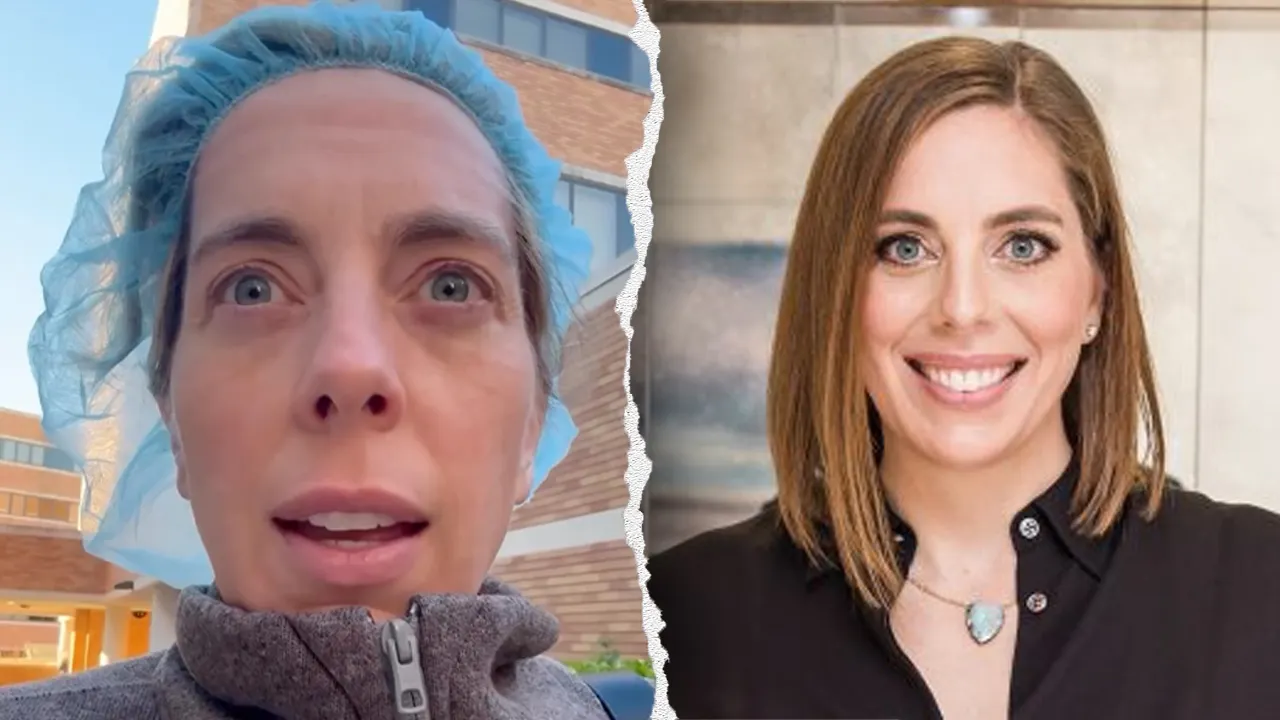
A surgeon in Austin, Texas, was in the middle of surgery when she was notified of a phone call from the patient’s insurance provider.
Dr. Elisabeth Potter is a board-certified plastic surgeon who specializes in reconstruction for women who have had breast cancer. Last year alone, she did about 520 surgeries for cancer patients.
She recently shared a video of herself talking about the experience.
HEALTH CARE COSTS UP TO 300% HIGHER FOR PRIVATELY INSURED PATIENTS THAN THOSE WITH MEDICARE, REPORT REVEALS
“I just performed two bilateral DIEP flap surgeries and two bilateral tissue expander surgeries,” she said in the now-viral video.
(In DIEP flap surgery reconstruction, skin, fat and blood vessels from the patient’s abdominal area are used to rebuild breasts.)
Dr. Elisabeth Potter, a Texas surgeon, recently shared a video of herself talking about a phone call that came in from an insurance company during a patient’s surgery. (Dr. Elisabeth Potter; @drelisabethpotter)
During one of the DIEP cases, while the patient was asleep on the operating table, the doctor was interrupted by a nurse supervisor informing her that a call had come in from UnitedHealthcare, the patient’s insurance company, Potter said.
The nurse who took the call said that Potter was in surgery and not available.
“And they said, I need to get her a message because we need to talk to her about this patient,” Potter told Fox News Digital. “So they wrote a note and brought it into the operating room and I took a picture of it, because I’m like, I can’t believe this is happening.”
HEALTH CARE IS ‘OVERWHELMINGLY COMPLEX’ FOR OLDER ADULTS, EXPERTS SAY: ‘EVER-INCREASING HURDLE’
The note indicated the name and number of the person to call at UnitedHealthcare, along with the patient’s name and Dr. Potter’s name. (The note did not state that the caller had requested an immediate response.)
“The nurse at the front desk of the OR who took the call and wrote this note said that the person on the phone first asked for the patient and then for me,” Potter told Fox News Digital.
“I made that judgment call and I stand by that — I think it was the right thing to do for the patient.”
“He was told I was scrubbed in[to the] OR and he asked the nurse that I be contacted in OR and given the message.”
Added Potter, “The nurse manager said she had never in her career received a call like that before. She thought it must be important and brought the message to the OR.”
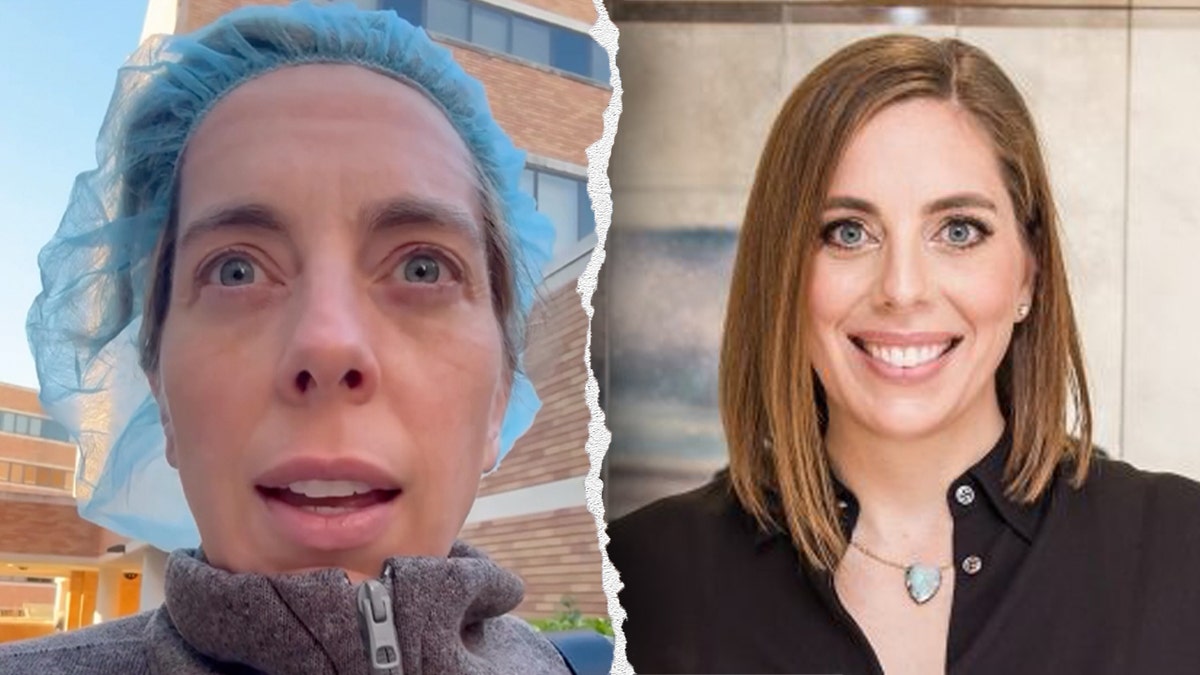
Dr. Elisabeth Potter, a surgeon in Austin, Texas, was in the middle of surgery when she was notified of a phone call from the patient’s insurance provider. (Dr. Elisabeth Potter; @drelisabethpotter)
It was odd, Potter said, that the insurance company had called the front desk of the hospital, where she is not an employee.
“They didn’t call my office. They didn’t call my cell phone. They didn’t send me an email. This wasn’t the billing department of the hospital.”
Afraid that the insurance company might deny the patient’s service, Potter made the decision to scrub out mid-surgery to return the call to United.
BOY FACING BLINDNESS GETS LIFE-CHANGING EYE SURGERY: ‘SUCH A BLESSING’
The surgeon stated to Fox News Digital that UnitedHealthcare did not require her to leave the operating room or threaten to deny coverage.
The patient was safe with another surgeon and the anesthesia team, who were finishing up the procedure.
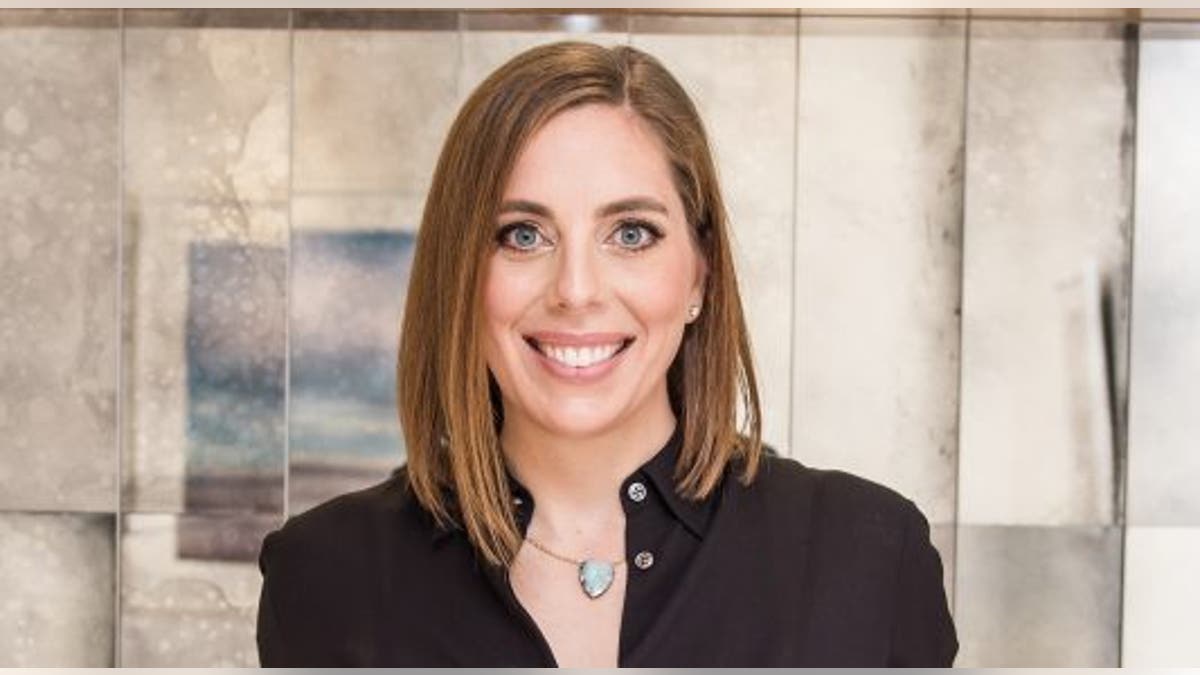
Dr. Elisabeth Potter is a board-certified plastic surgeon in Texas who specializes in breast reconstruction for women who have had breast cancer. (Dr. Elisabeth Potter)
Potter was “scared” that the patient would wake up and find out that the insurance company said they didn’t have the information they needed and would deny the claim, she said.
“I’ve seen it before, when people get stuck with bills that are $80,000 or $100,000,” she said to Fox News Digital. “And so I said to my partners, ‘I’m going to make this call real quick.’” (See her video here.)
“Dealing with insurance is a really important part of taking care of patients affected by breast cancer, because the diagnosis is financially devastating.”
“If it had been at a critical moment during the surgery, I wouldn’t have,” Potter clarified. “But I made that judgment call and I stand by that — I think it was the right thing to do for the patient.”
On the phone, the insurance company stated that they needed to know the patient’s diagnosis and the justification for the inpatient stay, something Potter had already communicated, she said.
WOMAN RECEIVES PIG KIDNEY TRANSPLANT, WALKS OUT OF HOSPITAL DAYS LATER: ‘SECOND CHANCE’
“And I was like, wait a minute, we got authorization for the surgery. We submitted all of our clinical documentation. We’ve done all the paperwork, the phone calls, all the stuff. You have her diagnosis codes, you have all of it,” she went on.
“And they said, ‘Actually, I don’t, another department has that, but I need this right now,’” Potter said. “There was a sense of entitlement to my time and to the information in that moment,” the surgeon added.
CLICK HERE TO SIGN UP FOR OUR HEALTH NEWSLETTER
Potter also noted that the person on the line didn’t have access to the patient’s full medical information, despite the procedure already being pre-approved.
“I’m not sure that person even understood that they had an impact on those patients I was operating on,” Potter told Fox News Digital. “They were just thinking about money and numbers and were not understanding at all.”

Potter was “scared” that the patient would wake up and find out that the insurance company said they didn’t have the information they needed and would deny the claim, the surgeon told Fox News Digital. (iStock)
“It’s beyond frustrating and, frankly, unacceptable,” she told Fox News Digital. “Patients and providers deserve better than this. We should be focused on care, not bureaucracy.”
Potter noted that she has always been “devoted” to providing care in-network through insurance.
“Dealing with insurance is a really important part of taking care of patients affected by breast cancer, because the diagnosis is financially devastating,” she told Fox News Digital.
“I’ve found that I really have to engage directly and think about insurance and whether they’re covering treatments and what my patients are experiencing.”
Potter emphasized that she doesn’t think insurance is “evil,” noting that there are some “really good things” about businesses that take care of people.

It was odd, the surgeon felt, that the insurance company called the front desk of the hospital, where she was not an employee. (iStock)
“But this has developed into something that no longer is devoted to patient care. This is just a machine that’s running and making money, and they don’t care about me as a provider,” she said.
Many physicians have given up and refuse to deal with insurance companies, opting to stay out of network and let the patient pay upfront and deal with getting reimbursed, Potter noted.
“Patients and providers deserve better than this.”
“I’ve gone to Washington, D.C., I have fought to protect access to [breast] reconstruction,” she said. “I have testified in the state legislature about these issues.”
She added, “It’s just getting undoable. And this moment, this week, was like, we’ve crossed a line — they’re actually in the operating room.”
HEALTH CARE OR HOUSING? MORE STATES ARE USING MEDICAID FUNDS TO HELP THE HOMELESS
Fox News Digital contacted UnitedHealthcare for comment. The company sent the following statement.
“There are no insurance-related circumstances that would require a physician to step out of surgery and it would create potential safety risks if they were to do so.”
It went on, “We did not ask nor would ever expect a physician to interrupt patient care to answer a call and we will be following up with the provider and hospital to understand why these unorthodox actions were taken.”
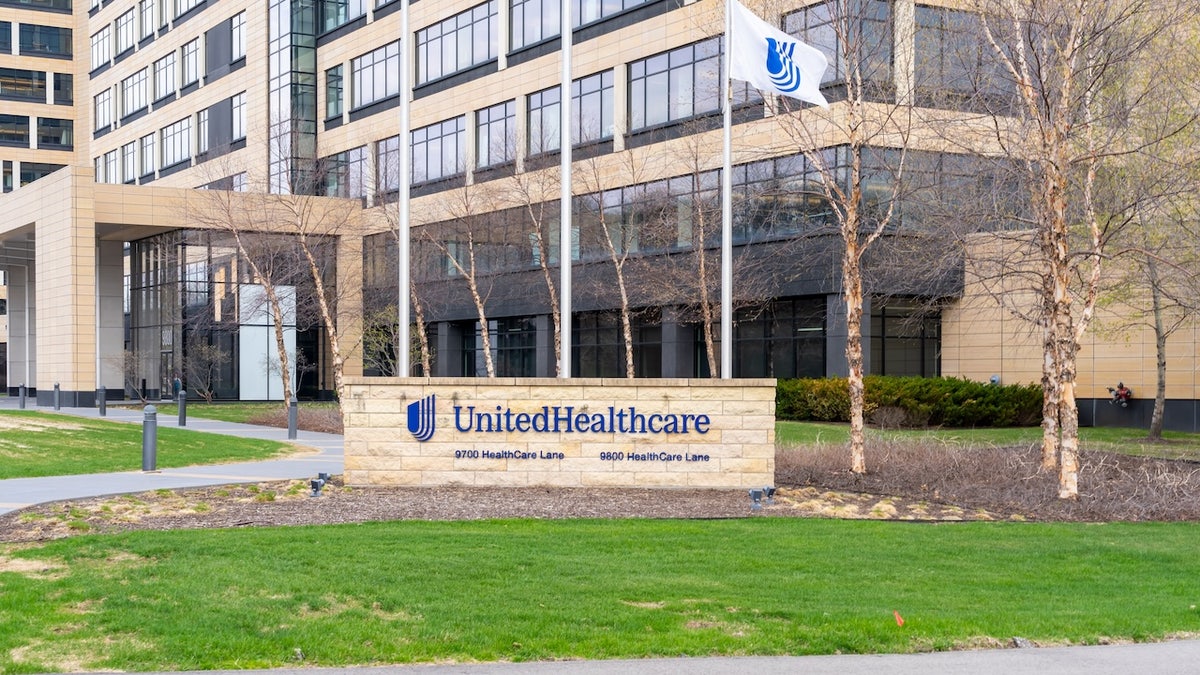
Separately, the head of UnitedHealthcare group said on Thursday that the company remains “focused on making high-quality, affordable health care more available while making the health system easier to navigate for patients and providers.” (iStock)
Separately, the head of UnitedHealthcare group said on Thursday that the company is confident it will be able to grow its business in fiscal year 2025.
“The people of UnitedHealthcare remain focused on making high-quality, affordable health care more available to more people while making the health system easier to navigate for patients and providers, positioning us well for growth in 2025,” CEO Andrew Witty said in the company’s earnings report on Thursday.
For more Health articles, visit www.foxnews.com/health
His optimism comes shortly after the head of its insurance unit was gunned down in New York City, inciting a heated conversation about the role of the health insurance industry in the United States.
Fox News Digital’s Daniella Genovese contributed reporting.
Health
Elderberry Boosts Weight Loss and Improves Blood Sugar, New Study Shows

Sign Up
Create a free account to access exclusive content, play games, solve puzzles, test your pop-culture knowledge and receive special offers.
Already have an account? Login
Use left and right arrow keys to navigate between menu items.
Use escape to exit the menu.
-
/cdn.vox-cdn.com/uploads/chorus_asset/file/25822586/STK169_ZUCKERBERG_MAGA_STKS491_CVIRGINIA_A.jpg)
/cdn.vox-cdn.com/uploads/chorus_asset/file/25822586/STK169_ZUCKERBERG_MAGA_STKS491_CVIRGINIA_A.jpg) Technology1 week ago
Technology1 week agoMeta is highlighting a splintering global approach to online speech
-

 Science6 days ago
Science6 days agoMetro will offer free rides in L.A. through Sunday due to fires
-
/cdn.vox-cdn.com/uploads/chorus_asset/file/25821992/videoframe_720397.png)
/cdn.vox-cdn.com/uploads/chorus_asset/file/25821992/videoframe_720397.png) Technology1 week ago
Technology1 week agoLas Vegas police release ChatGPT logs from the suspect in the Cybertruck explosion
-

 News1 week ago
News1 week agoPhotos: Pacific Palisades Wildfire Engulfs Homes in an L.A. Neighborhood
-

 Education1 week ago
Education1 week agoFour Fraternity Members Charged After a Pledge Is Set on Fire
-

 Business1 week ago
Business1 week agoMeta Drops Rules Protecting LGBTQ Community as Part of Content Moderation Overhaul
-

 Politics1 week ago
Politics1 week agoTrump trolls Canada again, shares map with country as part of US: 'Oh Canada!'
-
/cdn.vox-cdn.com/uploads/chorus_asset/file/23935558/acastro_STK103__01.jpg)
/cdn.vox-cdn.com/uploads/chorus_asset/file/23935558/acastro_STK103__01.jpg) Technology5 days ago
Technology5 days agoAmazon Prime will shut down its clothing try-on program
